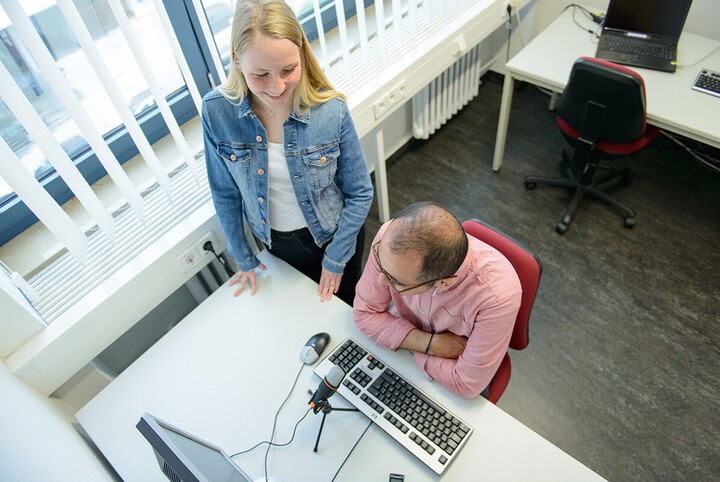Operations Analytics
Driving forward while looking back: Employee responses to error when monitored by emergent technologies

Author(s):
Hartmut Höhle, Florian Pethig, Fareed Zandkarimi
Cooperation Partners:
Aalberts Material Technology GmbH
Description:
In this project we are checking the effect of reclamations on several behaviors of production staff. Using process mining allows us to measure production-level behavior of workers. These measures are collected over a three years period of time to be analyzed via a Difference-in-Difference experiment. The expected results should broaden our understanding of employee responses to error.
We are looking into core-production data of a very large company. Applying statistical methods on production-level data is one major contribution of our work. Applying process mining as a method for investigating such phenomena is presented in this study. Also, the expected outcome(s) of studying the research problem, i.e., employee response to errors, provide practitioners with new insights on making effective decisions before or after an error is reported.
During the data collection phase, we collected 2.5 million production cases via access to company’s ERP. In order to apply process mining 500+ lines of SQL code developed to transform the data into process mining Eventlog. Also, a java artifact was exclusively designed to collect data for the Dif-in-Dif analysis. The aggregated dataset was then analyzed by Stata.
Mergers and acquisitions and the reallocation of labor

Author(s):
Britta Gehrke, Ernst Maug, Stefan Obernberger, Christoph Schneider, Peter Severin
Cooperation Partners:
Institut für Arbeit und Beruf (IAB)
Description:
We study the reallocation of labor in mergers and acquisitions in Germany. Overall restructuring is large. Targets lose more than half of their labor force within two years after the acquisition relative to a matched sample. The increase in employee turnover is also substantial. Acquirers have a better-educated, better-paid, and more qualified workforce than targets. Restructuring of targets makes the composition and compensation of their workforce more similar to that of acquirers. Mergers create internal labor markets, but these are quantitatively much less significant than the increase in hiring from and departures to the external labor market. We argue that merged firms build “knowledge-based hierarchies,” which better economize on the scarce skills of managers and highly-skilled employees and have been associated with improved productivity. We find little to support alternative theories based on the notion that acquisitions address skill shortages or create internal labor.
Should we account for retrials in time-dependent queues?

Author(s):
Ömer Özümerzifon, Benjamin Legros, Raik Stolletz
Cooperation Partners:
EM Normandie
Description:
Queueing systems are used in various service systems, such as repair facilities, health care, and call centers. In many of these service systems, customers leave the queue before being served due to a lack of patience. However, these customers may re-enter the system after some time as retrials. This research project focuses on the stationary and time-dependent performance evaluation of multi-server queueing systems with retrials, and the impact of distribution of retrial time, i.e., the time after a customer returns to the system. We develop a stationary backlog-carryover (SBC) approach and a modified stationary independent period-by-period (SIPP) approach to approximate main performance measures. Analytical results and numerical insights demonstrate the impact of the distribution of retrial times.
Process Mining meets Procurement: Application of Process Mining Methods to Measure Inefficiencies in Procurement Processes

Author(s):
Prof. Dr. Christoph Bode, Prof. Dr. Hartmut Höhle, Jun.-Prof. Dr. Jana-Rebecca Rehse, Jonas Ronellenfitsch, Fareed Zandkarimi
Cooperation Partners:
Schott AG, Hilti AG, HeidelbergCement AG und Heidelberger Druckmaschinen AG
Description:
Procurement processes, such as purchase-to-pay (P2P), are of central importance to companies. Problems and inefficiencies in these processes can not only cause delays in production, but also lead to significant additional costs. However, limited research has been conducted on these processes, particularly at the operational level, meaning that it is not known what inefficiencies occur in the actual execution of the processes, where they come from, and how they can be prevented if necessary.
To address this question, an interdisciplinary research team of process mining and procurement experts is investigating how methods of process mining, i.e., the analysis of process execution data, can be applied to identify, measure, explain, and ideally eliminate inefficiencies in procurement processes. To this end, data from P2P processes of three large industrial companies are analyzed and examined for common patterns. Based on this research, new key performance indicators (KPIs) are developed that precisely quantify the inefficiency of a P2P process. These KPIs can now be used, for example, to identify temporal patterns in process inefficiency or to highlight the impact of an external influence, such as the Corona pandemic, on procurement processes.
Analytical approaches for performance evaluation and optimization of stochastic and dynamic processes in digital production.

Author(s): Johannes Diefenbach, Fikri Karaesmen, Justus Arne Schwarz, Raik Stolletz
Cooperation Partners: Koc University (Istanbul) and the Robert Bosch GmbH
Description:
This project contributes by developing new analytical models and fast approximation methods for the performance analysis and optimization of dynamic semiconductor manufacturing processes. Methods from prescriptive analytics generate insights on how new products are introduced to the production system and the market, especially when the yield is stochastic.
The research project is part of “Productive 4.0”, Europe’s biggest research project in the field of Digital Industry. The project is recognized as an ECSEL Lighthouse Initiative and receives funding from the EU and the German Federal Ministry of Education and Research (BMBF). It investigates how electronics and Information and Communication Technologies (ICT) can enhance production efficiency in semi-conductor supply chains across the entire value chain and product life cycle. With 109 partners from industry and research institutions, Productive4.0 provides companies with fundamental tools necessary to transform the potentials of the upcoming digital revolution into business success.